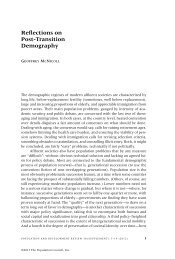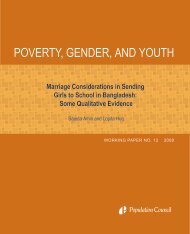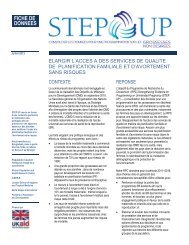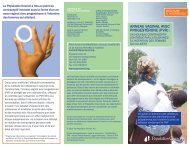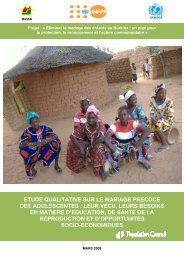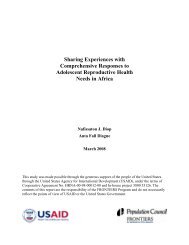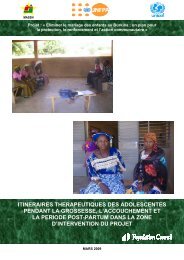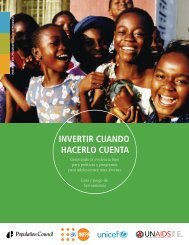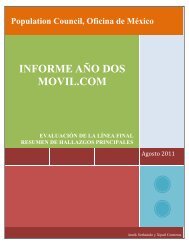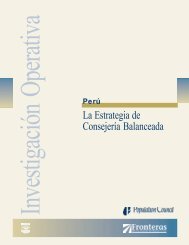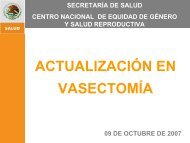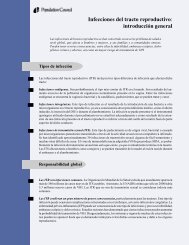Community Health Volunteer's Training Manual - Population Council
Community Health Volunteer's Training Manual - Population Council
Community Health Volunteer's Training Manual - Population Council
You also want an ePaper? Increase the reach of your titles
YUMPU automatically turns print PDFs into web optimized ePapers that Google loves.
Conflict Prernclonnt MnMarernctMnnt reoolclon<br />
Prevention we know is better than cure. This means that we have to do everything possible<br />
to stop conflicts from developing. Looking at the causes and sources of conflicts, let us list<br />
some ways of preventing conflicts. They are the very opposite of the causes of conflict. What<br />
are they? Yes…? They are ….<br />
Giving information and telling people the truth about any activity or situation<br />
empowers them and protects you.<br />
Communicating truthfully and frankly; being transparent and open; accepting people as they<br />
are; maintaining justice and fair play. Here are the suggested principles for preventing conflicts.<br />
Exercise 1.5.6 Group work<br />
Objective<br />
To discuss principles of preventing conflicts<br />
Time: 10<br />
Questions<br />
1. Why did you give so much or so little<br />
information?<br />
2. How does the information enhance the<br />
relationships with the people in your<br />
household?<br />
3. What do the newspaper, kerosene, fire<br />
wood and fire mean in a conflict situation?<br />
4. What does each contribute to the fire?<br />
5. How can each item be used to prevent the<br />
fire, stop or manage the fire?<br />
6. What attitudes do we need to change to<br />
promote easy resolution of conflict?<br />
Communicate truthfully and frankly<br />
Instructions to the Facilitator<br />
1. Do the Exercise 1.5.6<br />
2. After the exercise, ask one<br />
volunteer to lead the rest in<br />
a discussion on information<br />
each volunteer should give<br />
to their household before<br />
leaving home.<br />
3. From the group exercise<br />
how will you relate these<br />
principles to the bonfire?<br />
How many of you talked with people in your house before you left home this morning? How<br />
much information did you give them about where you were going and what you were going<br />
to do? When you got home yesterday, what information or Amaneε did you give to your<br />
wife/husband or the person you stay with when you got home?<br />
I am asking you all these questions so you can see how little information we give to people<br />
in our homes and work. We often do this unconsciously because our culture and upbringing<br />
teach us to keep information to ourselves.<br />
Why should we give information out? Because when everyone has the correct information<br />
they know what is expected of them. They know how much money and effort is needed, who<br />
they will be working with etc. if someone has the right information he or she is unlikely to<br />
make demands that cannot be met.<br />
77



